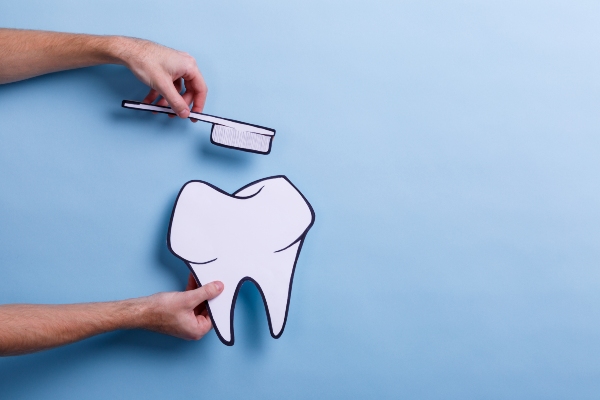What to do if a Dental Implant Crown Breaks

A dental implant crown is an artificial tooth that connects to the embedded post in the patient's jaw by means of an abutment. The crown is the visible part of the three-piece implant used to replace a missing tooth through a surgical procedure. The dental crowns used with implants are usually made of porcelain but can also be constructed of other materials. Although these crowns are tough, strong and resilient, it is still possible for them to get chipped or broken through an accident, sports injury, constant teeth grinding or biting down on a hard object.
Steps to take when a dental implant crown is damaged
Whenever individuals experience a problem with an implant crown, whether it is a crack, chip or unusual looseness, they should seek professional help. Since the crown provides protection for the titanium implant, it is important to address the issue immediately.
Get to the dentist right away
If the dentist who performed the implant procedure is available, contact the office, explain the situation and make an appointment as soon as possible. If this dentist or an associate is not accessible, get in touch with a dental professional who works with implants and request an emergency appointment.
Use care eating
Immediately after a dental implant crown breaks, avoid eating anything on the side of the mouth where the broken crown resides. Chewing could cause further damage, as well as pain from the broken pieces. It may be necessary to adjust to soft food or a liquid diet until the crown is repaired. Try to restrict the food intake to soups, smoothies or other soft items, such as mashed potatoes or cooked vegetables, to ensure that further damage does not occur.
Rinse the mouth
One of the most important things to do when a dental implant crown breaks is to rinse the mouth with saltwater. Mouthwash can be harsh on the tissues of the mouth and gums, especially if there is something broken. Saltwater is safe and gentle enough to keep the mouth clean but also remove any debris from the damaged implant crown. Rinse gently and spit out the saltwater immediately after to ensure that nothing is swallowed or left behind.
Collect any pieces
In some instances, the patient may be able to see or feel the pieces from the damaged crown. It may be helpful to collect these pieces carefully and preserve them. In the event the dentist can salvage the current implant crown, these pieces could become useful. Whether the crown needs replacement or not, any retrieved pieces can be beneficial to the dentist when determining the course of action.
Contact us today
A dental professional should immediately address any issues with cracked, chipped or broken dental implant crowns. If you are experiencing problems with a damaged crown or would like to consult a dentist about the possibility of an implant, call our office as soon as possible for assistance. Our team of dentists will be happy to help.
Request an appointment here: https://www.ohiocosmeticdentists.com or call Ohio Cosmetic Dentists at (614) 503-5240 for an appointment in our Columbus office.
Check out what others are saying about our services on Yelp: Read our Yelp reviews.
Recent Posts
Prioritizing routine dental care is necessary for good health. Unfortunately, some people can find it difficult to care properly for their teeth by brushing, flossing, and seeing a dentist on a regular basis. Patients who disregard dental hygiene and professional care need immediate action to prevent dangerous outcomes.In addition to an unsightly smile, failing to…
Are you concerned about whether or not you will receive painless dentistry at your next appointment? You aren't alone. In fact, many people every year simply avoid the dentist altogether out of fear that they will have a painful experience. Unfortunately, for some people, they have already had a negative experience, so it's even more…
For healthy teeth and gums, routine dental care is necessary. For most healthy people, two times a year is the recommended frequency for dentist appointments. This is typically adequate for deeper cleaning and preventive care. However, for some patients, more frequent appointments are necessary to manage certain issues and to prevent problems from becoming more…
Endodontics is a branch of dentistry dedicated to saving teeth by treating problems inside the tooth. It focuses on the health of the tooth's pulp and roots, essential to your smile's overall strength and function. Endodontics could be the key to relieving discomfort and preserving your natural teeth if you are experiencing tooth pain or…


